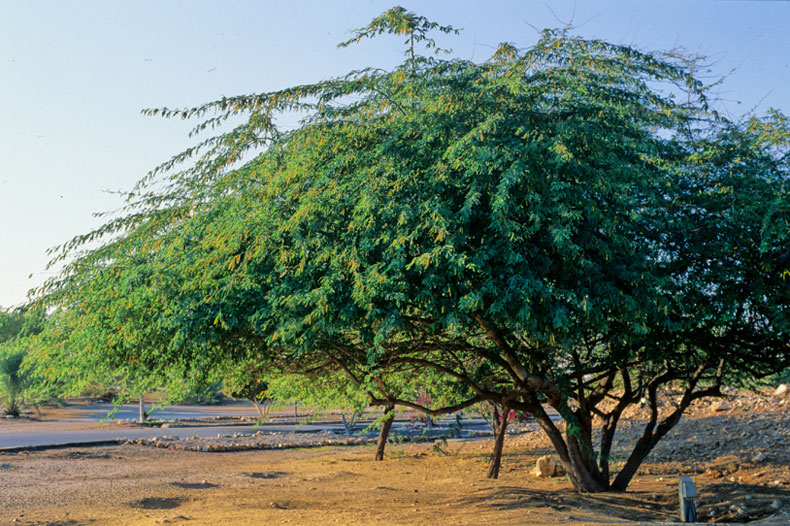Prosopis Juliflora
Prosopis Juliflora, is considered the most dangerous invasive plant species in East Africa. Introduced by various international development projects as part of soil stabilization efforts from the late 1960s through the early 1990s, Prosopis has spread rapidly throughout Somaliland. With no natural predators, it is estimated that the tree covers over 6,000 square kilometers of Somaliland, with an annual growth rate of five percent. The species aggressive growth combined with a robust root system creates a significant challenge for agriculture and pastoralism across Somaliland.
The root system of Prosopis consists of a deep taproot (phreatophyte), sometimes reaching to the unusual depth 35 meters and more creating very dry desert like land, combined with extensive lateral roots. Prosopis is especially suitable for dry sites with annual rainfall between 150 and 700 mm. Taproots contribute to a stable anchoring of the tree and expand toward groundwater reserves. They are essential during periods of drought when only deep-water sources. Once the water source is reached, the roots extend horizontally in the direction of the water flow. Prosopis species are adapted to areas with low rainfall and long periods of drought once they are established and are able to tap groundwater or any other water source during the first years. The lateral roots play an important role during rainy seasons or periods of abundant water, for instance, in irrigated areas. The trees are also able to absorb moisture through their foliage during light rains or from dew or other atmospheric sources of moisture.
However, elsewhere in the world, Prosopis is viewed differently. In South America, where the tree originates, it is approaching extinction due to over harvesting for its many uses. Mesquite charcoal, the by-product of Prosopis trees, is one of the most popular options for barbecuing in North America and Europe and is sold as a premium product on global markets. With effective marketing, Lander Prosopis can establish mesquite charcoal from Somaliland as a socially-responsible product to amplify amenability in target markets. As for centuries, Prosopis has been used as valuable eco-friendly mesquite charcoal. This is not a new concept. Lander Prosopis believes that through social enterprise and appropriate natural resource management, it will transform Prosopis Juliflora from a hazardous, useless plant into a useful advantage for Somaliland’s economic and social development. The Prosopis tree, will be the focus of Lander Prosopis charcoal production, which will be selected at the sites where their overgrowth has negative consequences for other forms of agriculture, with the assistance of technical experts who can ensure the environmental sustainability of this project. The domestic market for charcoal is also potentially promising, depending on pricing strategy, as it remains the primary cooking fuel in the country.
